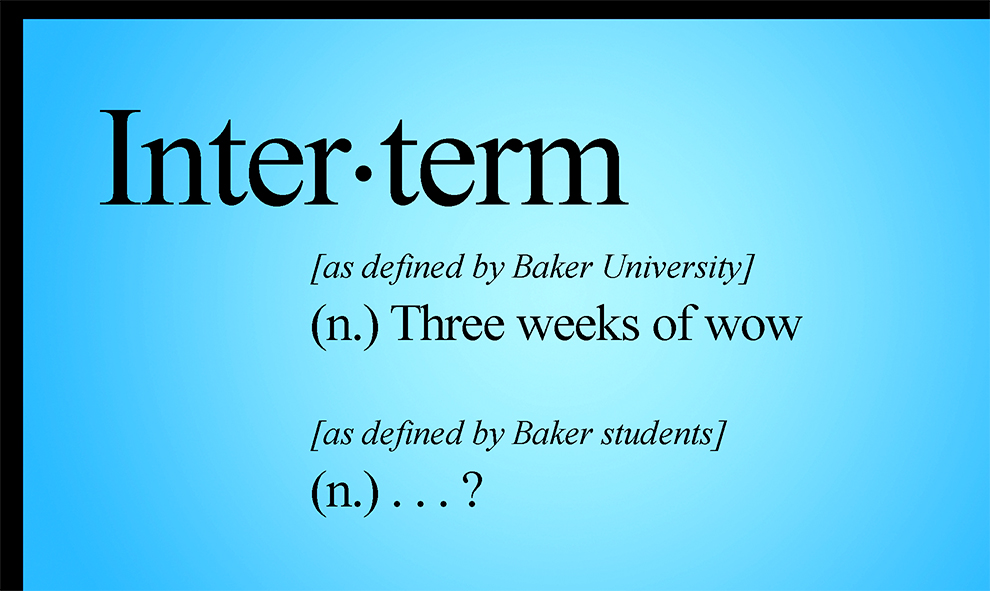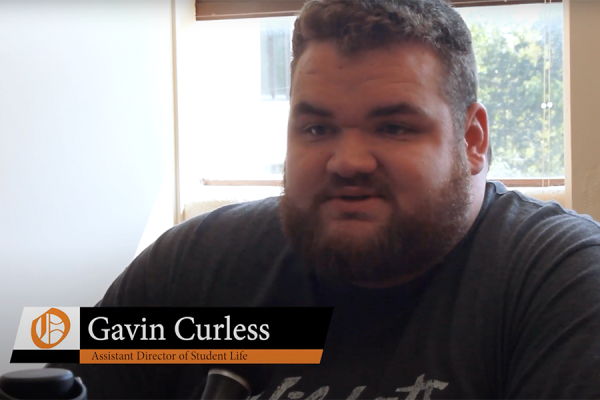Editorial: Students struggle to connect with interterm
Image by Sarah Baker.
After a winter break with family and friends, returning to school can be difficult for students. Explaining to those family and friends that you’re leaving them either to scuba dive in Honduras or to watch movies in a campus classroom for three hours a day can be even more challenging.
While interterm is a requirement for all Baker students, shouldn’t students have a good understanding as to what it is? The Baker website describes interterm as “three weeks of wow,” but that isn’t quite an accurate definition of what students get themselves into for three weeks in January. Interterm works well in giving Baker a distinctive liberal arts flavor; however, students’ interpretations of interterm can be completely different.
For those who are not in the Baker community, it’s difficult to describe a term that can involve Yucatan adventuring to one person, an internship to another, and a class involving stress relief and napping to a third. Interterm can be a great option for those who don’t like the idea of a full semester abroad, but what about those students who don’t want to travel or don’t have the money? Does this mean they should be forced to take a class they’re not interested in when they could be working back in their hometown?
To students focused on earning their degree and moving on into the work force, a class about spirituality and well-being can seem unnecessary. While interterm classes can count for hours toward a student’s degree, they rarely include classes that are major requirements or Quest requirements.
Most Baker University students are required to complete two interterms during their four years at Baker, or one for some transfer students. Freshmen are required to take an interterm class during their freshmen year.
Interterm is useful in giving students different opportunities and keeping campus more populated during the month of January, but for many students it’s still more of an inconvenience. The addition of more classes required for majors could help students see the benefits of interterm rather than the setbacks.
Explaining interterm to those not attending Baker is complicating. The real challenge for the Baker administration is finding ways to give students the classes that they want and need so that students can give more positive explanations of interterm rather than negative ones.







